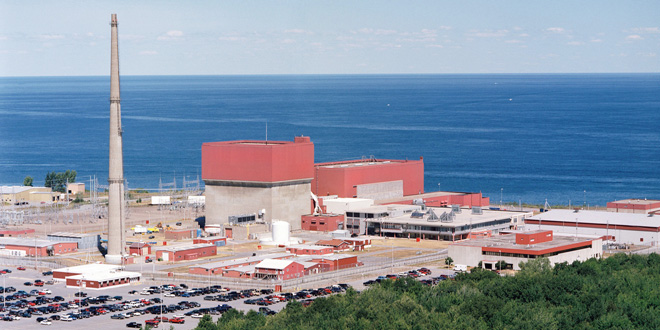By Michael Kuser
A New York court on Tuesday rejected a challenge to the state’s zero-emission credit program, dismissing a suit by Hudson River Sloop Clearwater and others against the Public Service Commission’s 2016 decision to establish the program to subsidize economically unviable nuclear plants.
Acting Justice Roger D. McDonough of the New York Supreme Court in Albany County dismissed all of the suit’s main complaints in a decision that could still be appealed to the state’s highest court, the Court of Appeals.
In their suit, the petitioners argued that the PSC had already authorized the retirement of the R.E. Ginna nuclear plant before implementing the ZEC program and that it failed to properly assess the potential impact of the James A. FitzPatrick plant retiring. They also complained that the PSC’s Tier 3 category for existing renewables under the Clean Energy Standard (CES) was arbitrary and capricious and that it failed to follow its own ratemaking guidelines for monopolies in developing the program.

James A. FitzPatrick Nuclear Power Plant in Scriba, N.Y. | Entergy
“There was adequate administrative support for PSC’s adoption and implementation of Tier 3 … [and] the PSC has offered a rational basis for their ZEC pricing methodology in the unique circumstances presented herein,” McDonough wrote in his ruling.
He also refused to award any costs, fees, disbursements or attorneys’ fees to the petitioners.
Part of the legal challenge concerned the commission’s decision to use the federal government’s social cost of carbon metric to determine how much to pay nuclear power plants for the value of their avoided carbon emissions.
“This ruling affirms that the social cost of carbon is an appropriate and effective tool for state policymakers,” Richard Revesz, director of the Institute for Policy Integrity at NYU School of Law, said in a statement. “New York was right to use the [SCC] in valuing the environmental benefits of avoided carbon emissions. The court ruling could help provide guidance for other states pursuing climate policies.”
The institute had filed an amicus brief arguing that the commission used the SCC exactly as intended, to internalize the external cost of carbon emissions.
Federal Court Backing
The 2nd U.S. Circuit Court of Appeals last September upheld the ZEC program, rejecting the argument that it intrudes on Appeals Court Upholds NY Nuclear Subsidies.)
The PSC created the program in August 2016 as part of the CES, which set a goal of reducing greenhouse gas emissions by 40% by 2030.
The commission said the program avoided the issues behind the U.S. Supreme Court’s April 2016 ruling in Hughes v. Talen, which voided Maryland regulators’ contract with a natural gas plant as an intrusion into federal jurisdiction over wholesale power markets.
In a briefing to the court, the Coalition for Competitive Electricity, Dynegy, Eastern Generation, NRG Energy, Roseton Generating and Selkirk Cogen Partners — independent power producers that compete with the nuclear plants — and co-plaintiff EPSA claimed the ZEC program “is not an environmental measure … [but] merely a mechanism to benefit the owners of the nuclear power plants.”



